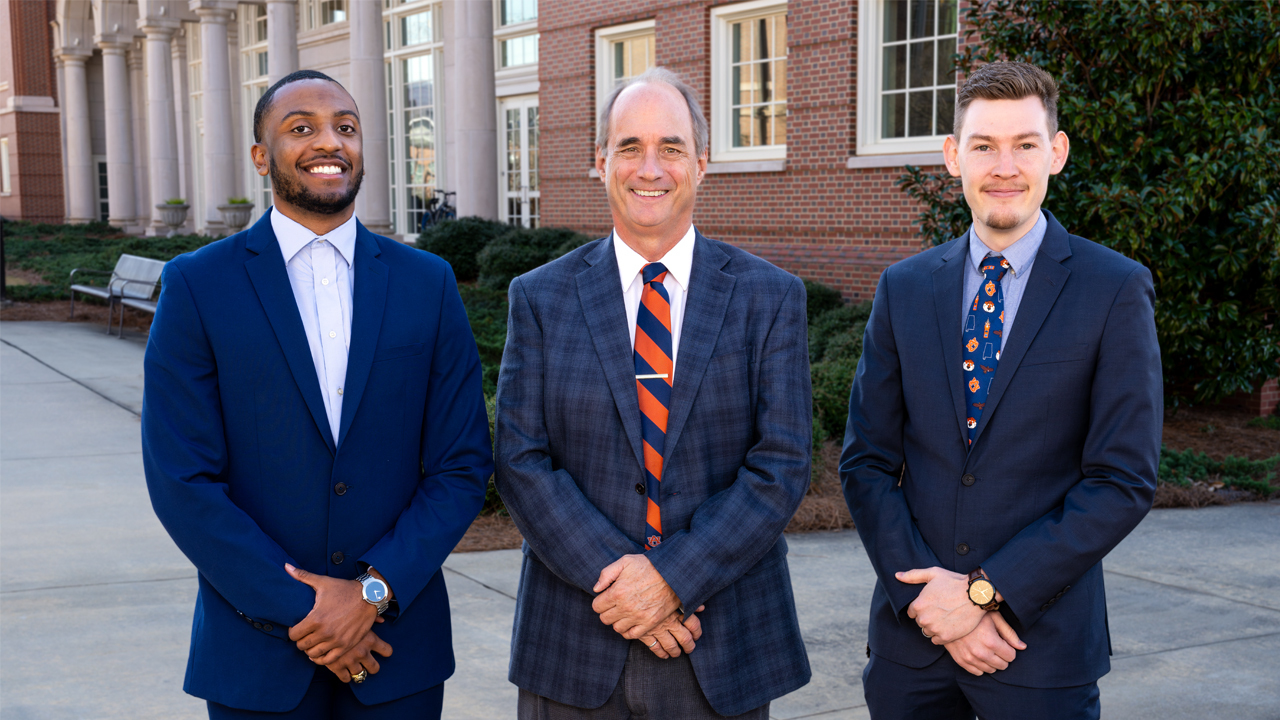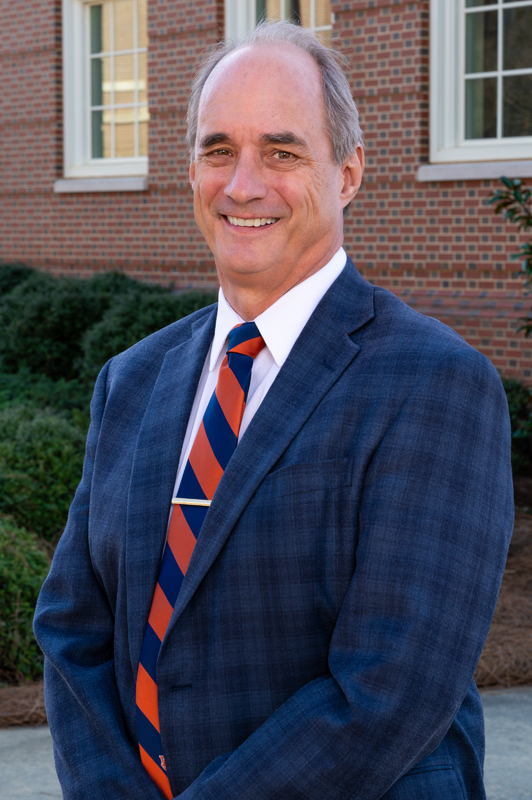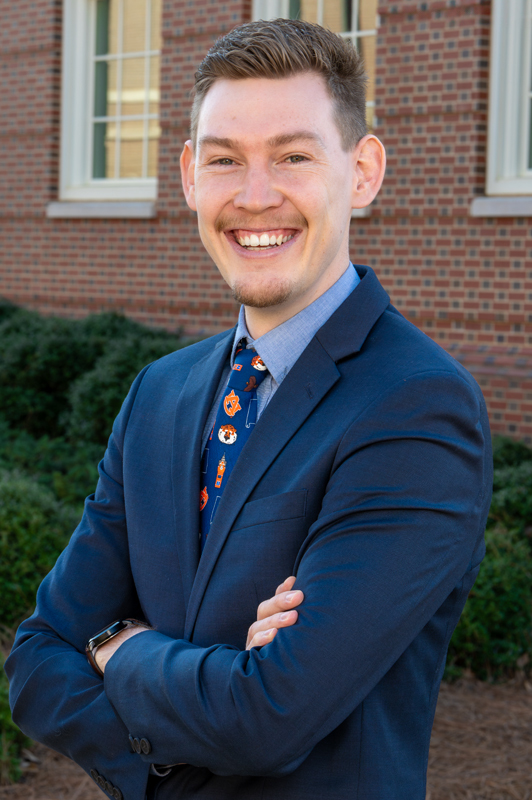AUTRI partners with U.S. Army’s Engineer Research and Development Center to improve safety
Published: Feb 26, 2024 11:25 AM
By Dustin Duncan
Safety and security are paramount considerations at U.S. military installations' entry control points (ECPs).
The Auburn University Transportation Research Institute (AUTRI) has received a $1.4 million subcontract from the University of Nebraska-Lincoln Midwest Roadside Safety Facility (MwRSF) to collaborate with MwRSF and the U.S. Army Corps of Engineers’ Engineer Research and Development Center (ERDC) to improve the safety and efficiency of ECPs to Department of Defense (DoD) facilities.
Larry Rilett, AUTRI director, Adrian Cottam, AUTRI assistant research professor and Corey McDaniels, doctoral student in the Department of Computer Science and Software Engineering, are working on the project.
Auburn’s work focuses on two critical components of ECP design. The first is related to improving traffic flow at ECPs. Some ECPs experience long delays that can cause traffic to back up onto adjoining arterial roadways and highways and lead to unsafe conditions. The AUTRI researchers are developing models that allow designers to improve ECP efficiency by identifying key design variables, including the optimum number of guard stations and the entry length of access roads. They will also develop accurate simulation models for improved ECP designs. AUTRI is partnering with the ERDC to identify case studies and obtain data to validate their models.
“Facility engineers will be able to analyze a large number of options using calibrated and validated ECP models,” Rilett said. “This will allow them to make more informed decisions on how they should design their ECPs.”
The second focus area is related to ECP security. The team will analyze current security protocols and develop models that will assist designers with improving security. For example, the current ECP design assumes that the threat vehicles will be powered by conventional gasoline engines. Electric vehicles have very different characteristics, including instant torque, which allows for much faster acceleration. AUTRI researchers will study how new technologies, including automated and electric vehicles, affect security. In addition, they will develop a new simulation tool that designers can use to test varying threat scenarios that can be tailored to the needs of bases throughout the globe.
The team is working closely with Steve Carter, director of the Transportation Systems-Mandatory Center of Expertise with the U.S. Army Corps of Engineers, and a doctoral candidate with the University of Nebraska-Lincoln. Carter has extensive experience with the design and construction of ECPs throughout the DoD, and is keen to the intricacies of security and threats posed to ECPs.
“We are excited to participate in this important ERDC research project,” Carter said. “The targeted outcomes will result in safer and more efficient ECP design and operations, while simultaneously maintaining security and increasing throughput, which are both critical elements to DoD installations.”
“This is a tool for bases to make changes based on the evolution of vehicles,” Rilett said. “We will not be telling the designers how to design the ECP. Rather, we will be providing them calibrated and validated tools so they can do the studies themselves and have a better way of trading off different goals they have.”
Balancing security and efficiency on DoD facilities can be a complex challenge, and the models developed by AUTRI will allow operators to meet both objectives successfully. Established in 2021, the AUTRI provides a unified presence and strategic direction for promoting the renowned transportation-related research conducted within the academic departments and research centers in the Samuel Ginn College of Engineering.
Media Contact: , dzd0065@auburn.edu, 334-844-2326
Larry Rilett, AUTRI director (middle), Adrian Cottam, AUTRI assistant research professor (right) and Corey McDaniels, doctoral student in the Department of Computer Science and Software Engineering (left) pose for a photo on Auburn’s campus. The three are collaborating with the University of Nebraska-Lincoln Midwest Roadside Safety Facility and the Department of Defense to improve safety.



